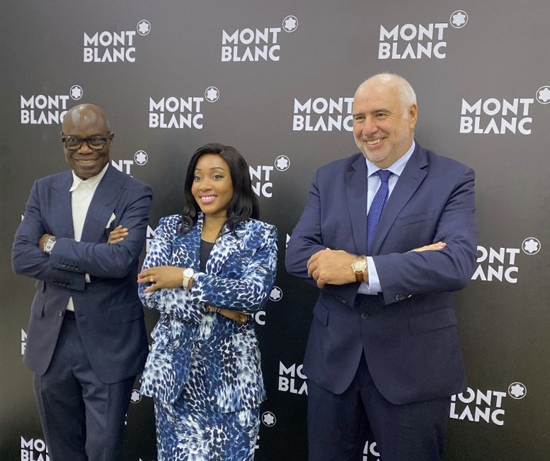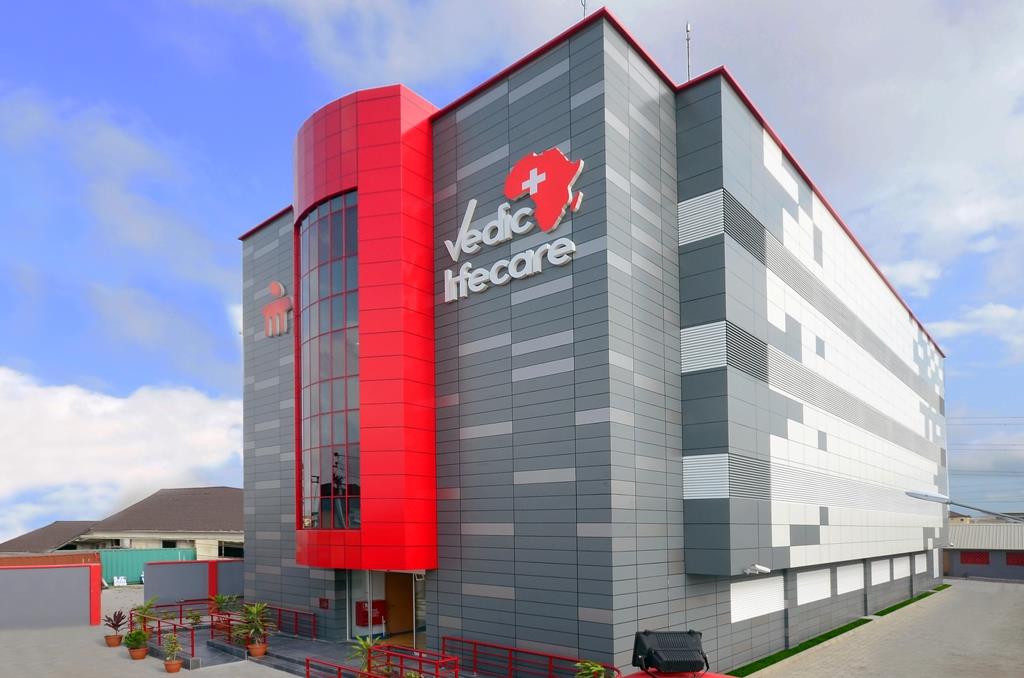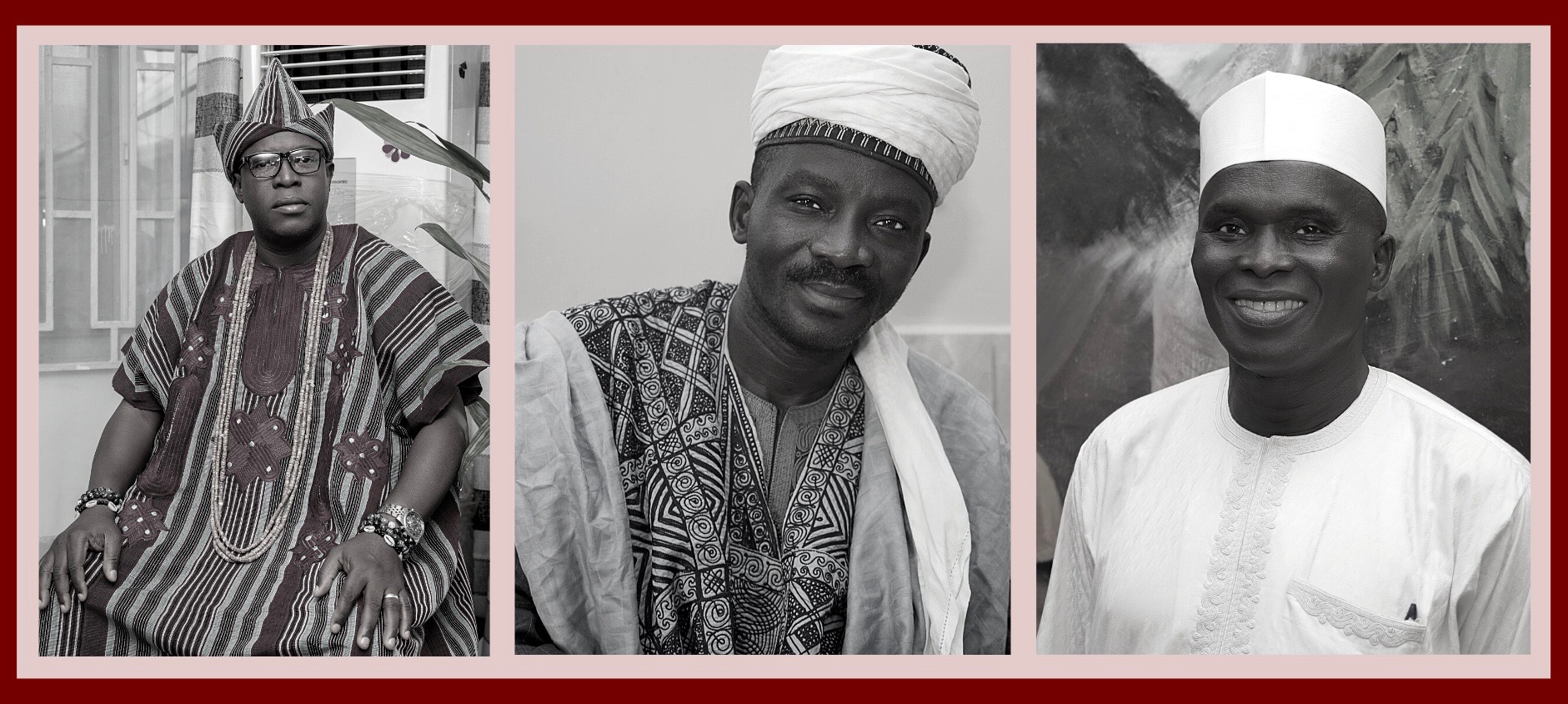For seventy years, the Coca-Cola System in Nigeria has made education a major pillar of its Corporate Social Responsibility strategy, bringing hope to millions of people across the country. Gilbert Alasa examines the journey so far.
On a cold evening in October 2015, a young man – dark-complexioned and clad in a free-flowing native attire – emerged from a crowd at the Kenyatta International Convention Centre in Nairobi, Kenya, venue of the annual CNN/Multichoice African Journalist of the Year gala ceremony. His gait was measured, yet unsteady as he made his way to the podium – perhaps out of the sheer magnitude of what was before him. His name is Femi Asu, a Business and Energy correspondent with Nigeria’s Punch Newspapers. He had just been announced as winner of the Economics & Business Award category of the prestigious journalism prize with his story titled: ‘Small businesses in death throes as power supply worsens’.
In a citation that drew both applause and aplomb, the judges wrote: “With detailed examples, the author demonstrates how businesses are severely affected, in some cases closing down with huge consequences on the country’s economic development. The piece is well written with the reader taken on a journey that highlights the issue with affected individuals and businesses. Excellent research.”
“Coca-Cola and the Nigerian Bottling Company made it possible; they provided the platform that primed me for virtually everything I have achieved in my career today,” Asu said in hindsight. But that acknowledgement is only a tiny fraction of the full story.
Like hundreds of Nigerian youths, Asu cut his teeth in the media through Campus Life, an education project of the Nigerian Bottling Company and Coca-Cola Nigeria targeted at undergraduates in the nation’s tertiary institutions. The project, which was complemented by an eight-page pullout in The Nation newspapers, was aimed at grooming and empowering a new generation of change agents and culture shapers across Nigeria’s higher institutions through deliberate skills development.
Through series of bi-annual training workshops facilitated by seasoned career coaches and accomplished media and communications experts, the programme has empowered hundreds of Nigerian undergraduates who are currently leading the charge in various sectors of the economy – from Public Service to Health, Education, Entertainment, Media and Communication, International Development, , Social Enterprise, Advocacy, amongst others.
Just like Femi, Nnamdi Azikiwe University’s (UNIZIK) youngest female lecturer and Ph.D researcher at the University of Leicester, Ngozi Marion Emmanuel, says she would be forever grateful for the indelible impact of the project on her career.
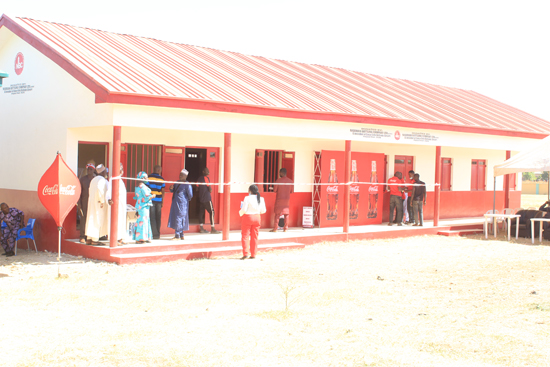
“The Coca-Cola project gave me everything I needed – the capacity, exposure and the mentorship I needed to succeed in my career as a young person. It was everything in one for me.”
“Today, I am the woman I have always dreamed about becoming as a young person. I am currently doing my Ph.D at the University of Leicester (UK) in Disability Studies and Policy and that makes me smile every day,” she said.
A New Approach to Education Interventions
Beyond the avalanche of hands-on capacity building programs, career coaching and mentoring offered by the project, NBC and Coca-Cola Nigeria foresaw an education system where the school-to-work transition would be as seamless as eating ice-cream on a sunny day. To achieve this, the approach to Education interventions needed to be much more strategic, rather than the tokenistic flavour that seems to color a chunk of Education CSR programs in the country today.
For the Coca-Cola System in Nigeria, this broad-based, long-term, and sustainable model continues to shine through every page of its CSR playbook. Whether it is facilitating education access for millions of out-of-school children in the war-torn Northern Nigeria or helping young women and girls rediscover the path to economic freedom through education, the Coca-Cola System prioritizes the sustainability of its initiatives on the people and communities.
And it doesn’t take long to realize why this is critical, particularly for a developing economy like Nigeria. According to the United Nations Population Fund, the current generation of youth numbering 1.8 billion, accounts for a quarter of the global population and constitutes a dominant force, not only in the now but in the future. But most of them live in developing countries like Nigeria, whose educational systems are unable to empower them with employability skills and relevant capabilities to attain self-reliance or thrive in the workplace.
These gaps in the education system are part of the major factors responsible for the growing army of unemployed graduates in many developing economies, including Nigeria. In July this year, the World Bank raised the alarm over the disturbing unemployment situation in Nigeria, which rose five-fold within the last 10 years alone.
Earlier in March, the National Bureau of Statistics (NBS) disclosed that Nigeria’s unemployment rate soared to 33.3 percent in the final lap of 2020 as against the 27.1 percent recorded in the second quarter of the same year.
For the past seven decades since its foray into the Nigerian market, the Coca-Cola System has made education a major pillar of its Corporate Social Responsibility strategy. And the mission has been simple: leverage critical investments across the Education value chain to elevate Nigeria’s human capital development indices, renegotiate the destinies of millions of Nigerians disadvantaged by lack of access, and empower a critical mass of the population with relevant competencies, skills, and values to find expression to their highest purpose.
“We believe that education is not only a leveler and a catalyst for democratizing opportunities for millions of people, it is also a critical tool to inspire national renaissance, birth future-thinking paradigms and consolidate economic development. As a system, investments in education remain one of the highest expressions of our commitment to the future of this nation and our shared progress as a people,” said Matthieu Seguin, Managing Director of the Nigerian Bottling Company.
“For 70 years since we began operations in the country, our faith in the future of Nigeria has remained unwavering. Having seen the country through a number of significant moments and historical transitions, we are confident of the emerging possibilities that abound amidst the myriads of challenges facing the country,” he said.
Education in the Spirit of the Times
“There is a tide in the affairs of men,” wrote English playwright William Shakespeare, “which taken at the flood, leads on to fortune. Omitted, all the voyage of their life is bound in shallows and in miseries. On such a full sea are we now afloat. And we must take the current when it serves or lose our ventures.”
Just like these “tides” in the human fate, critical epochs in the history and evolution of the world have underscored why education interventions must be tailored to solve the most urgent challenge of the time.
This sentiment has been re-echoed by the Organisation for Economic Co-operation and Development (OECD) recent study on the COVID-19 pandemic and education philanthropy. Drawing on its wide consultations with 26 foundations, in-depth interviews and desk research, the report noted that: “The COVID-19 pandemic has shed light on the need to explore new approaches in education delivery from pre-primary to higher education. These include a wider range of cognitive, social and emotional skills in the curricula; the active involvement of parents in their children’s education; and the adoption of technologies that allow for flexible and personalized learning.”
In January, the Coca-Cola System, through its foundation, funded the Tech Relevant Teacher (TRT) Project, an ambitious response to the disruption in the education system caused by the pandemic. The program, which was implemented by the Bunmi Adedayo Foundation, provided training for 24,000 school pupils, with 648 school leaders and classroom teachers drawn from 216 schools benefiting from the intervention.
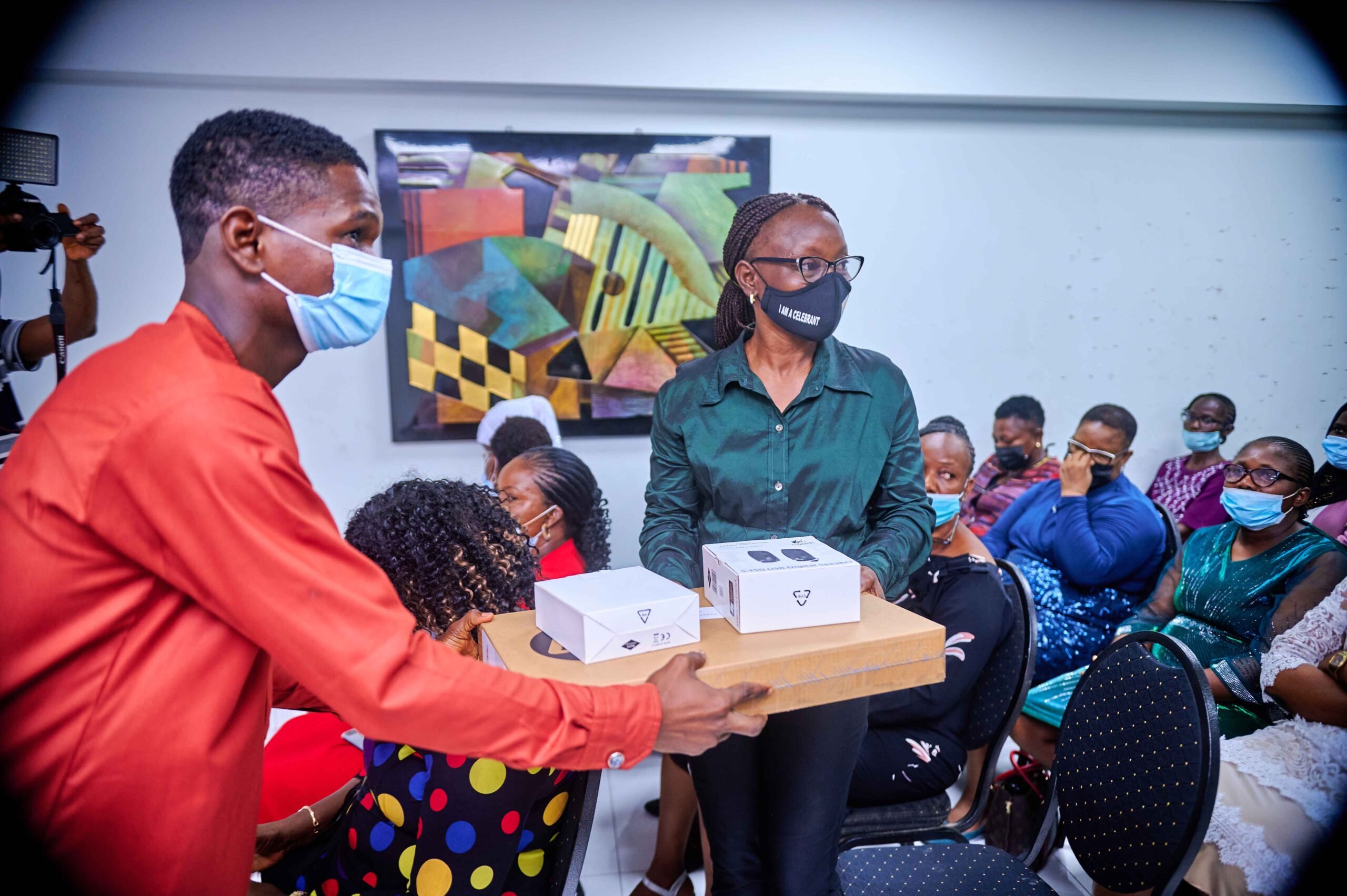
Public Affairs, Communications and Sustainability Director, Coca-Cola Nigeria, Nwamaka Onyemelukwe, explained that the project could not have been implemented at a more opportune time as it significantly impacted the education sector in Nigeria.
“We could not be more delighted at the outcome of this project. We were aware of the effects of the pandemic on access to quality education, especially within low-income communities and we decided to act,” Onyemelukwe said.
“With support from our implementing partners, the BAF, we are proud to have contributed significantly to closing the gap in education between underserved and privileged communities.”
Within the last four years, the Coke System, through its ‘Youth Empowered’ program, has trained over 21,000 on entrepreneurship and employability skills across different cities in Nigeria. Aside facilitating a horde of employment opportunities for many beneficiaries, the program has also birthed several start-ups in various fields that cut across the green, blue and digital economy.
In the last 10 years, the Coke System has led integrated infrastructure and literacy development projects across the country, reaching over 28,000 students and teachers in low-income communities. Together, these projects have raised the annual school enrollment, increased female students attendance and improved the retention levels in target schools.
“In the last 10 years, we have designed programmes that cater to the full cycle of an individuals’s educational development. At the primary school level, we focused on schools infrastructure development, which saw the construction and renovation of classrooms in over 30 schools across the country. We complemented this with the Back-to-School programme where we provided school uniforms, books, school bags to thousands of pupils in disadvantaged communities to enable them return to school at the beginning of the school year.
“At the secondary level, in addition to uplift in schools infrastructure and scholarships, we embarked on the Defining My Tomorrow programme, a career guidance programme to give direction to students as they prepare to make critical decisions on course of study and career.
“Our post-secondary initiatives focus on employability and entrepreneurial skills, to support young people transit to work by providing them with life and business skills. Over 21,000 young people have benefited from these initiatives in the last four years. It’s amazing to see how these gestures are transforming the life of young Nigerians”, added Ekuma Eze, Public Affairs and Communication Director of NBC.
For the past two years, the Coca-Cola System has partnered with the US Consulate on its EducationUSA Opportunity Funds Program (OFP) aimed at supporting academically bright but financially disadvantaged students to achieve their education ambitions in top US colleges and universities.
As the first corporate partner of the Opportunity Funds Program in Nigeria, Coca-Cola continues to demonstrate its commitment to the program, providing support to 30 scholars who in turn have received fully funded scholarships valued at about $4 million to attend American universities and colleges for the 2021/2022 academic session.
Alfred Olajide, Managing Director, Coca-Cola Nigeria, explained “This partnership represents one of great pride for us in Nigeria as it provides a unique opportunity to make a difference in the lives of young scholars who are the future of our country. We are hopeful these exceptional students will excel just as their peers before them, after which they would lead the charge for transformation of Nigeria following the successful completion of their programs”.
A New Future for Education
“Education,” said late UN Secretary-General, Kofi Annan, in a 1997 World Bank Conference, “is the premise of progress, in every society, in every family.” If Nigeria must attain its Sustainable Development Goals by 2030, corporate interventions in education need to closely mirror Coca-Cola’s winning model – one that begins with the end in mind and targeted at addressing the most pressing challenges of our age through big-picture thinking.
In its 70 years of operations in Nigeria, the Coca-Cola System has carefully espoused a new philosophy to education – building and scaling interventions in a way that leave the recipients not just as beneficiaries of corporate good, but as carriers of that good and conduits for expanding progress.
Most importantly, the Coca-Cola System has taken a bold step to address the big elephant in the room – the idea that corporate investments in education should not end at providing learning aids and facilities for schools alone or driving one-off interventions that merely scratch the surface of a deeper problem.
If anything, the Coca-Cola System has shown us just how to light up a gloomy nation through the power of education; how to rethink education interventions as a long-term commitment and not an activity; how organizations and key stakeholders can join forces to reset the pulse of a society.
“A man does not plant a tree for himself. He plants it for posterity,” Alexander Smith once remarked. The Coca-Cola System is a case in point.
Add a comment
